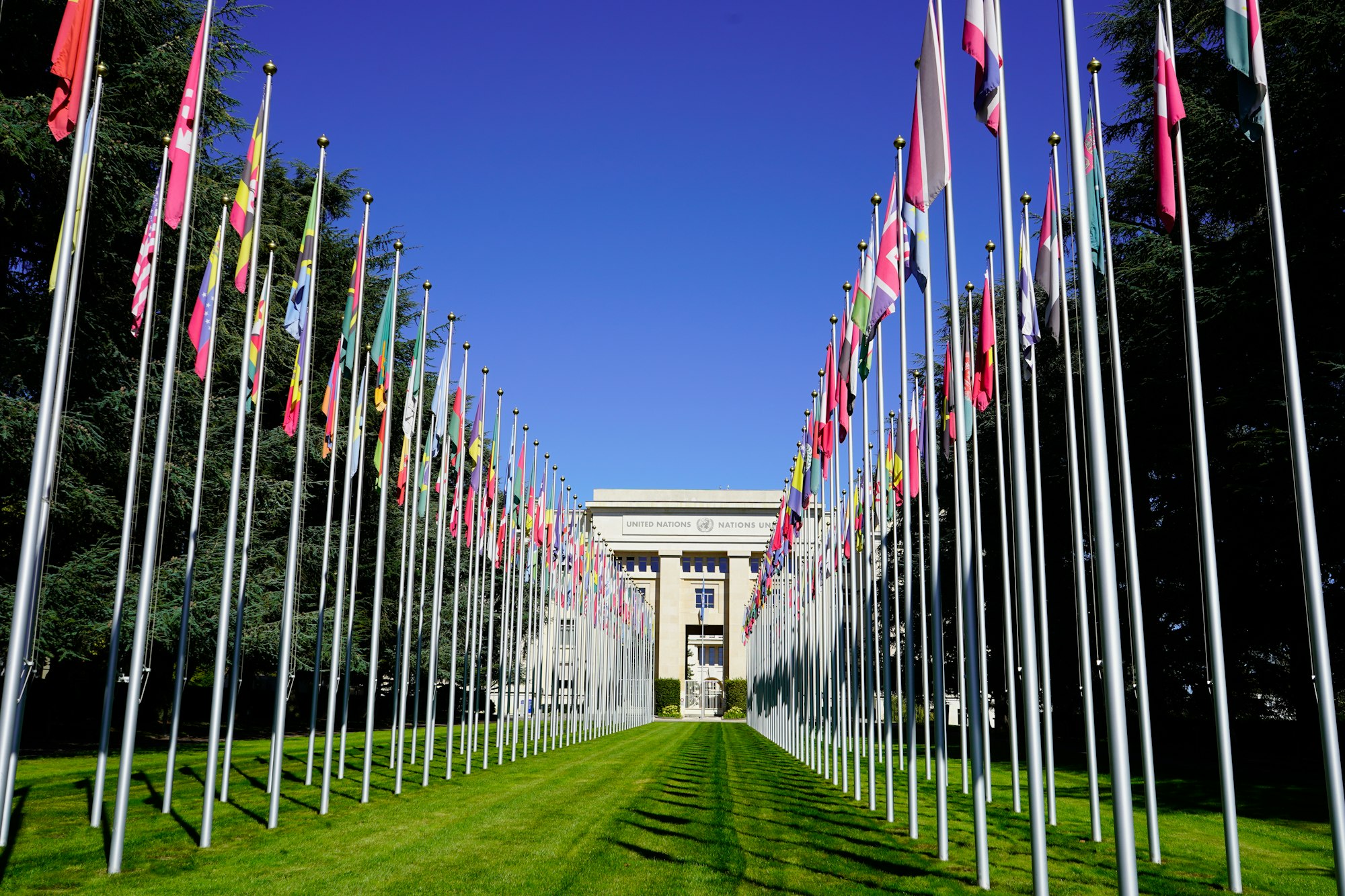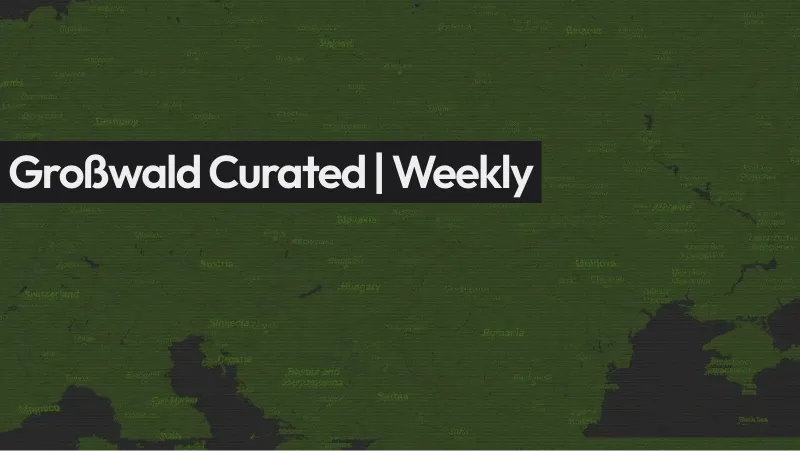The End of Post-Merkel Illusions: Trump’s Second Term, Germany, and Changing Defense Priorities
Foreign policy advisor to the incoming U.S. President Donald Trump, Ken Weinstein, stressed that Trump expected Germany to take more responsibility for its own defense, signaling reduced U.S. security guarantees for Germany and Europe.

In a conversation on 6 January 2025, Deutschlandfunk host Vladimir Balzer interviewed Kenneth Weinstein, a foreign policy advisor to former U.S. President Donald Trump and senior fellow at the conservative Hudson Institute. This interview, conducted just days before Donald Trump’s second inauguration as President of the United States, offered important insights into how a new Trump administration thinks global geopolitics and defense policy—particularly in relation to Germany and Europe. Below is a synthesis and analysis of the key arguments.

1. Post-Merkel Realities and the Emergence of Friedrich Merz
Weinstein highlights that Germany is at a political crossroads following the Angela Merkel era, calling it “the end of the illusions from the Merkel-time.” According to Weinstein, Germany’s lackluster economic growth, heightened concerns over internal security, and upcoming early Bundestag elections are all part of a challenging post-Merkel landscape. Polling data (in the interview) at the time suggest a likely chancellorship under Friedrich Merz (CDU). Weinstein contends that Merkel’s approach to Donald Trump “totally failed” and that a Merz-led government may instead choose to cooperate closely with Trump:
“He [Merz] and his team […] will ask: ‘What do we need to do? What is required of us?’ They know Merkel’s approach to Trump failed, and they will look to meet him halfway, if not more.” (Kenneth Weinstein, Deutschlandfunk Interview, 06 January 2025)
Key takeaway: The Trump team is expecting a German pivot in favor of higher defense spending, reduced economic and technological ties with Russia and China, and a more assertive posture within the NATO alliance.
2. Defense Spending and NATO Targets: 2%—or Even 5%?
A central theme is Weinstein’s emphasis on defense expenditures. He applauds Germany’s recent progress toward the 2% target (partly spurred by the war in Ukraine), but asserts that for Trump, this is still not enough. Weinstein reveals that a new Trump administration might push for 3% or even 5% of GDP on defense. This aligns with Trump’s longstanding contention that Europe—especially Germany—has historically “free-ridden” under the American security umbrella.
“Trump speaks of a possible 3% goal for NATO expenditures—and it could be 5%.” (Kenneth Weinstein, Deutschlandfunk Interview)
Key takeaway: Expect stronger pressure from a second Trump presidency for Germany (and the rest of Europe) to increase defense spending well beyond what many European states had considered politically acceptable.
3. Ukraine Policy and a ‘Trump Method’ to End the War
Weinstein emphasizes the Ukraine conflict as Trump’s top foreign-policy priority. He references General Keith Kellogg’s (former advisor to Vice President Pence) appointment as a special envoy, whose job would be to bring Russia to the negotiating table. Weinstein suggests that Trump envisions a two-pronged approach:
- Pursue a Ceasefire and Negotiations: Impose tighter energy sanctions on Russia to push President Putin to accept an outcome he can frame as a partial defeat—recognizing Ukraine as sovereign and independent.
- Arm Ukraine Massively if Negotiations Fail: Much like Trump’s “fire and fury” approach with North Korea, the administration may pivot swiftly from negotiation to robust military support if Moscow remains intransigent.
Key takeaway: Trump’s style, as portrayed by Weinstein, is “unorthodox but strategic,” relying on sharp U-turns—heavy sanctions and threats on one side, immediate negotiation offers on the other. If peaceful negotiations fall through, the U.S. might double down on lethal aid to Ukraine.
4. German Role in the Ukraine Conflict
Weinstein argues that Berlin is “absolutely central” in the Ukraine question. Despite acknowledging Germany’s 100-billion-euro “Sondervermögen” (special fund) and compliance with the 2% NATO target, Weinstein believes the U.S. will expect more arms deliveries and assistance to Ukraine, as well as a more proactive stance on European security. He also hints at future support for an EU or OSCE peacekeeping force in Ukraine if a ceasefire agreement emerges.
“Germany is central, the country must do more […] even though financially and otherwise it will be challenging.” (Kenneth Weinstein, Deutschlandfunk Interview)
Key takeaway: Under Trump’s leadership, the U.S. will place the onus on Germany to shoulder more responsibility for Eastern European stability, including Ukraine’s defense and rebuilding efforts.
5. Global Geopolitical Shifts: The China Factor
Weinstein reiterates Trump’s longstanding criticism that Europe (Germany in particular) relies too heavily on China—especially in the automotive sector. He suggests that an overarching goal of the next Trump administration is to contain China’s geostrategic and technological reach, including preventing Chinese investment in critical infrastructure like ports, airports, and telecommunications.
Key takeaway: Expect tighter U.S.-German coordination to reduce Chinese influence in strategic industries, with Washington urging Berlin to introduce stricter controls on Chinese investments.
6. Borderline Proposals: Panama, Canada, and Greenland
One of the more colorful elements in Weinstein’s interview involves Trump’s statements on wanting stronger influence—or even partial control—over the Panama Canal, exploring unification or statehood ideas vis-à-vis Canada, and investing heavily in Greenland for Arctic security reasons. While Weinstein concedes these moves can appear “provocative,” he views them as part of Trump’s classic negotiation style—“the real estate mindset”—to keep counterparts off-balance and to maximize U.S. bargaining power.
“He [Trump] is a New York real estate guy; he knows you can only achieve something by applying pressure—and it’s good if the other side thinks you’re crazy.” (Kenneth Weinstein, Deutschlandfunk Interview)
Key takeaway: These proposals may or may not come to fruition, but they underscore Trump’s maverick approach to global power competition, especially regarding strategic chokepoints (Panama Canal) and Arctic resources (Greenland).
7. Implications for Diplomacy and Transatlantic Relations
Balzer challenges Weinstein on whether Trump’s brand of disruptive diplomacy undermines trust and stability. Weinstein responds that traditional diplomacy enabled China’s WTO membership and furthered U.S. and European deindustrialization. Trump, he argues, will continue to rely on a mixture of unpredictability and blunt pressure, guided by a more prepared team than in 2017.
“There will be less turbulence than in the first term, but also changes of mind if Trump thinks it’s needed.” (Kenneth Weinstein, Deutschlandfunk Interview)
Key takeaway: A second Trump administration may retain a hard-nosed style, but with fewer staffing missteps and a narrower range of potential policy swings—aimed at building bigger bargaining leverage against global competitors (Russia, China) and pressuring allies to meet U.S. priorities.
8. Looking Ahead: A Possible U.S. Ambassador to Germany?
In a personal aside, Weinstein expressed interest in serving as U.S. Ambassador to Germany—though he doubts he will be asked. As he explains, Trump often picks donors or close campaign staff for top diplomatic posts. Nonetheless, Weinstein underscores that any new U.S. envoy will be tasked with “calming Washington and Berlin” and ensuring transatlantic relations remain collaborative, even under a demanding White House.
Key takeaway: Germany’s next relationship with the U.S. could hinge on deft personal diplomacy—finding ways to manage Washington’s demands while preserving Europe’s own strategic autonomy.
Conclusion
Weinstein's interview suggests Trump’s second term may reshape global defense by pressuring NATO allies to boost spending, demanding rapid Ukraine conflict resolution or escalation, reassessing China ties, and revising U.S. strategies in the Arctic and Central America.
For Germany, specifically, the interview underscores an expectation of heightened defense commitments, realignment on critical issues like Russia and China, and a more transactional bilateral relationship with Washington. While Weinstein contends that the new Trump administration is now more “prepared,” it will likely maintain the signature unpredictability that characterized Trump’s first term.
Experts and policymakers in Berlin, Brussels, and beyond should anticipate firmer U.S. demands for increased burden-sharing, quicker decisions, and readiness to handle the “deal-making” impulses emanating from the White House. As the transatlantic community navigates the post-Merkel era, both Europe and the United States stand at a critical juncture in shaping the future of global security.
References
- Deutschlandfunk Interview: Vladimir Balzer im Gespräch mit Kenneth Weinstein, 06 January 2025.
- Hudson Institute, Kenneth Weinstein’s Profile: https://www.hudson.org (Accessed January 2025).

About the Author
This analysis was compiled for grosswald.org - geopolitics and defense-focused curated news, aiming to provide an expert audience with clear, factual insights into Kenneth Weinstein’s remarks on the anticipated Trump administration policies toward Europe.






